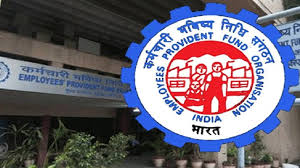When settling loans (personal, auto, home, education, business, credit card debt), one should be cautious as these decisions can impact credit score and financial future.
You may have taken a loan and after the lock-in period may want to pay it back in one go. A borrower is responsible for repaying not only the principal amount but also any accrued interest and additional charges imposed by the lender. Most banks have a lock-in period ranging from 1 to 3 years, during which you are not allowed to pre-pay the loan.
Read More:- FD rates set to change for bulk deposits: Will you get more interest now?
Timely repayment of dues constitutes the borrower’s primary obligation, and the lender holds the right to recover the total amount owed. Nonetheless, in exceptional circumstances, a borrower may petition the lender for a one-time loan settlement.
This arrangement permits repayment of an amount less than what is originally due. It should be noted, however, that such settlements can significantly impact the borrower’s future creditworthiness.
Read More:- This post office scheme will turn your Rs 2 lakh investment into Rs 4 lakh in 115 months, check full details
When settling loans (personal, auto, home, education, business, credit card debt), one should be cautious as these decisions can impact credit score and financial future. Consider terms, impact on credit, potential fees, and seek professional advice if needed. Plan wisely to safeguard your financial well-being.
Loan settlement arrangement
Upon identifying and verifying legitimate reasons for the borrower’s inability to repay the loan, a mutual agreement is reached between the lender and borrower. This agreement stipulates a one-time payment amount—less than the total outstanding dues—that settles the loan account in full.
Read More: Union Bank Of India Revises Fixed Deposit Interest Rates
Subsequently, the details of this settled loan account are communicated to credit bureaus as required by the Credit Information Companies (Regulation) Act, 2005. The credit bureaus then update their records accordingly and adjust the borrower’s credit score.
It is important to note that there are no universal guidelines or policies governing loan settlement criteria or calculations. Each lender operates under its own internal processes and may offer different settlement terms.
Read More: For Rs 5Cr Retirement Corpus, How Much Monthly SIP You Need To Start At Age Of 25, 30 Or 35 Years
So does a loan settlement impact your CIBIL credit score
“A loan settlement can negatively impact your CIBIL credit score. When you settle a loan, it indicates that you were unable to repay the full amount, and the lender accepted a lower amount as full payment. This status is reported to credit bureaus and remains on your credit report for several years. As a result, it can lower your credit score and signal to future lenders that you may be a high-risk borrower, making it harder to obtain credit or loans in the future. Therefore, it’s often better to repay loans in full if possible,” Anand Agrawal, Co-Founder and CPTO, Credgenics.
How can you remove loan settlement status from the CIBIL Credit Report?
To remove a loan settlement status from your CIBIL credit report, you can start by negotiating with the lender for a “full payment” status. Offer to pay the remaining amount in exchange for updating your credit report. Once an agreement is reached, ensure you get a “no dues” certificate from the lender.
Read More:- Senior Citizen Fixed Deposits offering up to 9.50% return in June – Check latest FD rates
Agrawal said one can dispute the settlement status with CIBIL by submitting the necessary documentation, including the “no dues” certificate and proof of payment. CIBIL will verify the information with the lender, and the status will be updated (if everything is in order), improving your credit report.
Increasing CIBIL credit score after loan settlement
“To increase your CIBIL credit score after a loan settlement, start by paying all your bills and EMIs on time to establish a positive payment history. Keep your credit utilization ratio below 30% by managing your credit card balances carefully. Avoid applying for multiple loans or credit cards in a short period, as this can signal credit risk,” Agrawal said.
Read More: How to manage your personal loan efficiently? Here are 5 best ways
He added that one can regularly check their credit report for errors and dispute any inaccuracies with CIBIL.
Additionally, consider taking a small loan or secured credit card to rebuild your credit history gradually. Consistent financial discipline and timely repayments will help improve your credit score over time.





































